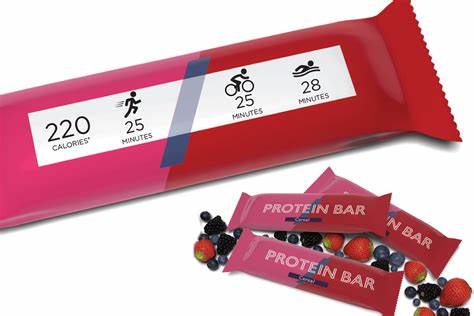A new style of food and drink labels that shows the amount of exercise you’d need to burn off the calories from your food selection doesn’t have any effect on food choices, a new study reveals.
Since April 2022, calorie labelling has been required on food and drink served out of the home in businesses employing 250 or more people across the United Kingdom. But this new study reveals that changing people’s consumption habits isn’t as simple as giving them more information.

New labels, old habits

As part of the study, for a 12-week period in 2021 scientists put physical activity calorie-equivalent (PACE) labels and calorific information alongside all food and drink items in ten workplace cafeterias. Each label showed how many minutes of walking would be needed to burn off all the calories of each product.
At the end of the 12 weeks, the researchers discovered that there was no significant difference in the amount of calories workers purchased compared to when the labels weren’t there. While one cafeteria reported a 161-kcal drop per purchase, another saw a 69-kcal increase with each transaction, and five of the cafeterias had no significant change at all.
The range of results suggests that these new labels aren’t effective and that there are many different factors that influence people’s eating and drinking habits.
The research team from the University of Cambridge’s Behavior and Health Research Unit completed two previous studies on the subject. They found that in nine work cafeterias, ordinary calorie labelling – without information about how to offset the effects of consumption – had no effect on people’s consumption habits either.
“Although we found that showing the amount of exercise required to burn off calories made little difference to the number of calories purchased – and, we can assume, eaten and drunk – there was considerable variability between cafeterias. This suggests that other factors may have influenced the effectiveness of these labels, such as the type of food sold in the cafeteria or the characteristics of those using them,” says first author Dr. James Reynolds from the School of Psychology at Aston University, who carried out the research while at Cambridge, in a media release.
The number of calories purchased from items that did not feature the PACE labels did not change and the labels made virtually zero difference in revenue for the cafeterias.
“This is the largest study in a real world setting to look at the impact of PACE labels on food and drink purchases, examining 250,000 transactions across 10 worksite cafeterias. The findings suggest that PACE labels, contrary to expectations, may have little or no impact on the food people buy in worksite cafeterias,” concludes Professor Dame Theresa Marteau, Director of the Behavior and Health Research Unit at the University of Cambridge.
Don’t hesitate to email us at [email protected] for personalized coaching and a client questionnaire if you’d like DEDICATED tailor-made personal training on strength training, building muscle, losing fat, developing athleticism, and more — all to your liking, lifestyle, habits, and taste!
Otherwise, don’t forget to claim your FREE eBook detailing how to lose 20lb of fat while building muscle in 12 weeks! You can claim it here.
Alternatively, you can pick up a FREE eBook on fundamental strength principles offering an introductory workout program.











